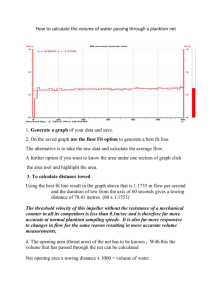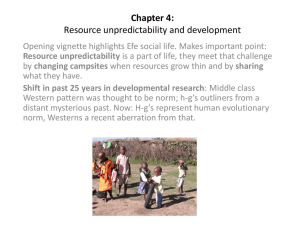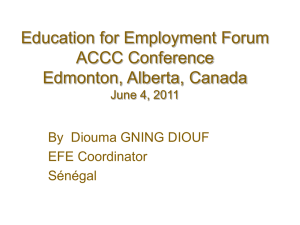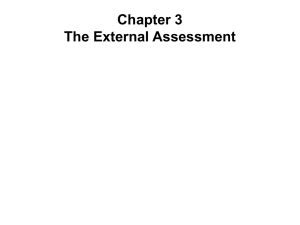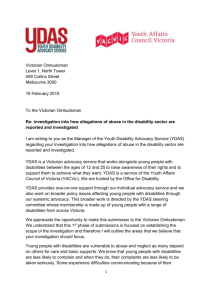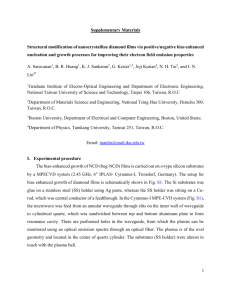summary of equip for equality`s authority
advertisement
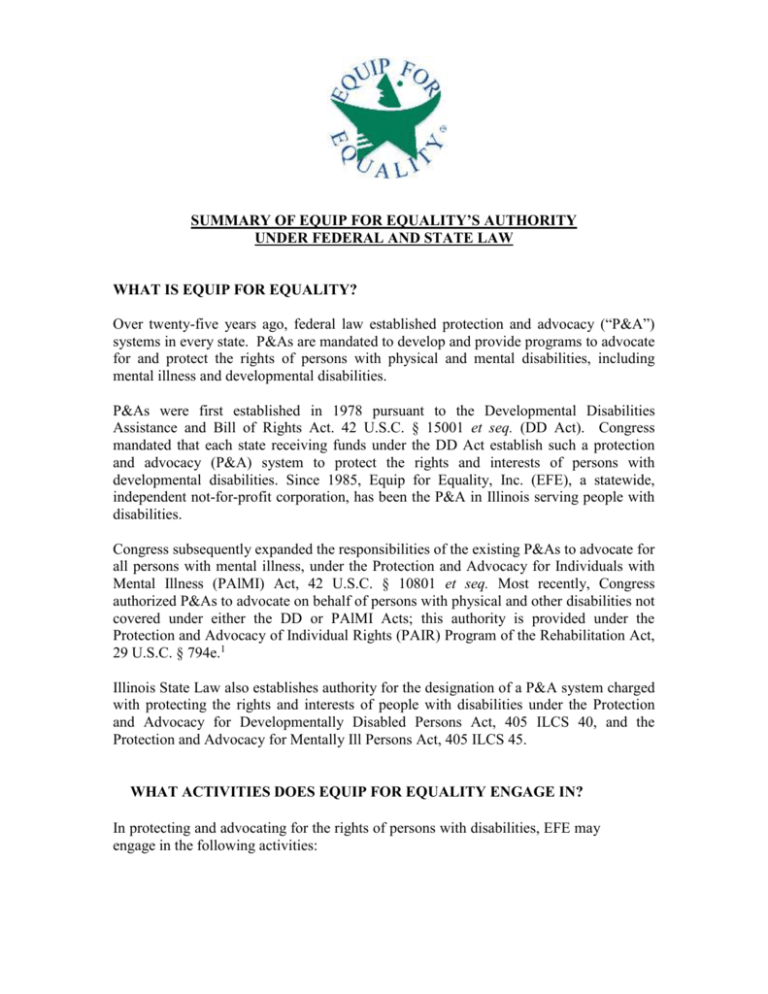
SUMMARY OF EQUIP FOR EQUALITY’S AUTHORITY UNDER FEDERAL AND STATE LAW WHAT IS EQUIP FOR EQUALITY? Over twenty-five years ago, federal law established protection and advocacy (“P&A”) systems in every state. P&As are mandated to develop and provide programs to advocate for and protect the rights of persons with physical and mental disabilities, including mental illness and developmental disabilities. P&As were first established in 1978 pursuant to the Developmental Disabilities Assistance and Bill of Rights Act. 42 U.S.C. § 15001 et seq. (DD Act). Congress mandated that each state receiving funds under the DD Act establish such a protection and advocacy (P&A) system to protect the rights and interests of persons with developmental disabilities. Since 1985, Equip for Equality, Inc. (EFE), a statewide, independent not-for-profit corporation, has been the P&A in Illinois serving people with disabilities. Congress subsequently expanded the responsibilities of the existing P&As to advocate for all persons with mental illness, under the Protection and Advocacy for Individuals with Mental Illness (PAlMI) Act, 42 U.S.C. § 10801 et seq. Most recently, Congress authorized P&As to advocate on behalf of persons with physical and other disabilities not covered under either the DD or PAlMI Acts; this authority is provided under the Protection and Advocacy of Individual Rights (PAIR) Program of the Rehabilitation Act, 29 U.S.C. § 794e.1 Illinois State Law also establishes authority for the designation of a P&A system charged with protecting the rights and interests of people with disabilities under the Protection and Advocacy for Developmentally Disabled Persons Act, 405 ILCS 40, and the Protection and Advocacy for Mentally Ill Persons Act, 405 ILCS 45. WHAT ACTIVITIES DOES EQUIP FOR EQUALITY ENGAGE IN? In protecting and advocating for the rights of persons with disabilities, EFE may engage in the following activities: Investigate incidents of abuse and neglect if the incident is reported to EFE or if EFE determines that there is probable cause to believe that the incident occurred. Monitor facility or program compliance with respect to the rights and safety of eligible individuals with disabilities who receive services from such facilities or programs. Pursue administrative, legal, and other appropriate remedies or approaches to ensure the protection of rights of eligible individuals with disabilities. Provide information, referral and training concerning programs and services addressing needs of eligible individuals, and training about individual rights and services available from EFE. WHAT ARE EQUIP FOR EQUALITY’S ACCESS AUTHORITIES? A. Facilities and Programs EFE is granted reasonable unaccompanied access to facilities or programs providing services to persons with disabilities. EFE must be permitted such access for the purposes of conducting an investigation of abuse or neglect, providing information and training on the rights of individuals with disabilities and monitoring compliance with respect to the rights and safety of individuals with disabilities.2 In the case of investigations into allegations of abuse or neglect, this access must be permitted, without advance notice, and at all times necessary to conduct a full investigation. This mandate includes authority to interview individuals with disabilities who reside in or receive services from programs or facilities serving people with disabilities, employees, or other persons who might have knowledge of the alleged abuse and neglect.3 With regard to its monitoring activities, EFE shall be permitted access to all areas of a facility or program that are accessible to individuals with disabilities, at all reasonable times, including beyond normal working and visiting hours; such access shall be allowed without advance notice.4 Monitoring activities, however, will be conducted so as to minimize interference with programs and to respect the privacy of individuals with disabilities. EFE shall also be permitted to provide information and training at all reasonable times, but will schedule such activities at times mutually agreeable to EFE and program or facility management. A “facility” or “program” to which EFE is entitled access includes a public or private, licensed or unlicensed, facility or program providing services, supports, care, treatment or other assistance to persons with disabilities. This specifically includes, but is not limited 2 to, a hospital, long-term health care facility, community living arrangement for people with disabilities, including a group home, board and care home, individual residence or apartment of a person with a disability where services are provided, day program, juvenile detention facility, homeless shelter, jail or prison, and a public or private school.5 B. Information and Records From Facilities and Other Agencies EFE has authority under federal and state law to access records of programs and facilities serving people with disabilities, and records of agencies charged with investigating incidents of abuse, neglect, injury or death of people with disabilities. And, in certain situations EFE has access to the confidential records of people with disabilities.6 The records available to EFE include, but are not limited to: Information and records prepared or received in the course of providing intake, assessment, evaluation, education, training, or other supportive services, including medical records, financial records, monitoring reports, or other reports, prepared by facility, program or service staff.7 Reports prepared by an agency charged with investigating reports of incidents of abuse, neglect, injury, or death occurring at a facility, where the individual with a disability is receiving services or care. 8 Agencies referred to here include, federal, state and local agencies. EFE has authority to access information that includes, but is not limited to: - The reports prepared by an agency…that describe abuse, neglect, injury, death.9 - The steps taken to investigate the incidents.10 - Personnel records prepared by or maintained by the facility or program in connection with reports of incidents of abuse, neglect, injury or death.11 - Supporting information that was relied upon in creating a report, including all information and records which describe persons who were interviewed, physical and documentary evidence that was reviewed, and the related investigative findings.12 - Discharge planning records.13 Pursuant to an investigation into abuse or neglect allegations, EFE also has access to information in possession of a facility including: 3 Reports prepared by individuals and entities performing certification or licensure reviews, or by professional accreditation organizations, and related assessments prepared for a facility by its staff, contractors, or related entities;14 and Information in professional, performance, building, or other safety standards, demographic or statistical information relating to a facility.15 In Illinois, several state and local agencies conduct investigations of abuse, neglect, injury or death, the Illinois Departments of Public Health, Human Services, Children and Family Services, Healthcare and Family Services, State Police and county coroners and medical examiners. If the Illinois Department of Public Health receives a report of suspected abuse or neglect of a recipient of services as defined in the Illinois Mental Health and Developmental Disabilities Code, the Department of Public Health must transmit copies of such report to EFE pursuant to the Protection and Advocacy for Developmentally Disabled Persons Act.16 Further, the Illinois Department of Public Health, the Illinois Department of Human Services and the Illinois Department of State Police must make available a copy of the final investigative report regarding investigations conducted by their respective agencies on incidents of suspected abuse or neglect of residents of mental health and developmental disabilities institutions or individuals receiving services at community agencies under the jurisdiction of the Illinois Department of Human Services. The Illinois Department of Human Services must also make available a copy of the results of disciplinary proceedings of employees involved in incidents of abuse or neglect.17 The Illinois Department of Public Health must make notices of deaths of recipients of services at a mental health or developmental disabilities facility available to EFE. The notice must include the name of the recipient, the name and address of the facility at which the death occurred, the recipient’s age, the nature of the recipient’s condition, including any evidence of the previous injuries or disabilities, or relevant medical conditions or any other information, which might be helpful in establishing the cause of death.18 EFE has the authority to access the records listed above, whether written or in another medium, draft or final, including but not limited to handwritten notes, electronic files, photographs, videotapes, or audiotapes.19 WHOSE RECORDS CAN EFE ACCESS? EFE is entitled to access the confidential records of people with disabilities20 under the following authority: Any person who is an EFE client, if that person, or legal guardian, conservator, or other legal representative of that person, has 4 authorized EFE to have access to information and records.21 A “legal guardian,” “conservator” or “legal representative” is the person who has legal authority to consent to health or mental health care or treatment on behalf of the individual.22 Any person, including any person who cannot be located, to whom all of the following conditions apply: - The individual, due to his or her mental or physical condition, is unable to authorize EFE to have access to his or her records; - The individual does not have a legal guardian, conservator, or other legal representative, or the individual's representative is a public entity, including the state; and - EFE has received a complaint that the individual has been subject to abuse or neglect, or has determined that probable cause exists to believe that the individual has been subject to abuse or neglect.23 Any person with a developmental disability who is deceased. EFE has immediate access, not later than 24 hours after EFE makes a request, to the records without consent from another party.24 Any person who is deceased, and for whom EFE has received a complaint that the individual has been subject to abuse or neglect, or has determined that probable cause exists to suspect abuse or neglect.25 EFE is entitled to access such records without consent from another party.26 Any person who has a legal guardian, conservator, or other legal representative with respect to whom a complaint has been received by EFE, or with respect to whom EFE has determined that probable cause exists to believe that the person has been subjected to abuse or neglect, whenever all of the following conditions exist: - EFE has contacted the representative upon receipt of the representative’s name and address. - EFE has offered assistance to the representative to resolve the situation; and - The representative has failed or refused to act on behalf of the person.27 5 Under federal law, EFE is the final arbiter for purposes of determining if there is probable cause to believe that an individual has been subject to abuse or neglect, or is at significant risk of being subjected to abuse or neglect.28 The probable cause determination is based upon reasonable inferences drawn from individual experience or training regarding similar incidents, conditions, or problems that are usually associated with abuse or neglect.29 Information supporting a probable cause determination may arise from monitoring or other activities, including but not limited to, media reports such as newspaper articles.30 If EFE is denied access due to lack of authorization, the facility, program or service provider shall promptly provide EFE with the name, address, and telephone number of the legal guardian, conservator, or other legal representative of the individual with a disability for whom authorization is required. Reasons for delay or denial of access must be provided in writing to EFE promptly.31 EFE’s authority to access records as described above is not affected by the regulations implementing the Health Insurance Portability and Accountability Act (HIPAA). The HIPAA regulations provide that health care providers and other entities covered under the regulations “may use or disclose protected health information to the extent that such use or disclosure is required by law and the use or disclosure complies with and is limited to the relevant requirements of such law.”32 Further, state law restrictions on the disclosure of records or other information are preempted by EFE’s federal access authority to the extent such restrictions may pose an obstacle to such authority.33 WHAT ARE THE TIME FRAMES FOR EFE’s ACCESS TO RECORDS? EFE shall have access to the records that are relevant to conducting an abuse or neglect investigation not later than three business days after EFE makes a written request for the records. EFE shall have immediate access to the records, not later than 24 hours after EFE makes a request, without consent from another party, if EFE determines that the individual is in serious and immediate jeopardy, or in the case of a death of an individual with a disability.34 WHAT CAN EFE DO WITH THE INFORMATION AND RECORDS THAT IT OBTAINS? Confidential information kept or obtained by EFE shall remain confidential and may not be subject to disclosure.35 However, EFE may do any of the following: Share the information with the individual client who is the subject of the record or report or other document, or with his or her legally authorized representative, subject to any limitation on disclosure to recipients of mental health services.36 6 Issue a public report of the results of an investigation that maintains the confidentiality of individual clients.37 Report the results of an investigation to responsible investigative or enforcement agencies including, but not limited to, agencies that are responsible for facility licensing or accreditation, employee discipline, employee licensing or certification suspension or revocation, or criminal prosecution.38 Pursue alternative remedies, including the initiation of legal action.39 Revised: 03/09/2009 Endnotes: 1 Congress intended that the authorities under the DD, PAIMI and PAIR laws be applied in a consistent manner. The PAIR Program expressly incorporates by reference at 29 U.S.C. § 794(e)(f) the authority regarding access to facilities and records for the purpose of investigating abuse and neglect (which is discussed below) set forth in the DD Act. Given that authority under the PAIR Program is substantially identical to that under the DD Act, statutory and regulatory citations regarding EFE’s authority are provided below only with respect to the DD and PAlMI Acts. 2 45 C.F.R § 1386.22(f)-(h); 42 C.F.R § 51.42(b)-(e). 3 45 C.F.R. § 1386.22(f); 42 C.F.R. § 51.42(b). 4 45 C.F.R. §1386.22(g); 42 C.F.R. § 51.42(c); Equip for Equality v. Ingalls Memorial Hospital, 292 F. Supp. 2d 1086 (N.D. 111.2003) and 329 F. Supp.2d 982 (N.D. 111.2004) (order establishing protocol for monitoring). 5 45 C.F.R. § 1386.19; 42 C.F.R. § 51.2; 405 ILCS 5/1-107 (Developmental Disability Facility); 405 ILCS; 5/1-114 (Mental Health Facility); 210 ILCS 45/1-113 (Facility; Long Term Care Facility). 6 42 U.S.C. §§ 15043(a)(2)(I), (8) and (J); 42 U.S.C. § 10805(a)(4); 45 C.F.R. § 1386.22(a)-(d); 42 C.F.R. § 51.41(a)-(c); 740 ILCS 110 et seq. (Mental Health and Developmental Disabilities Confidentiality Act). 7 42 U.S.C. § 15043(c)(1); 42 U.S.C. § 10806(b)(3)(A); 45 C.F.R. 1386.22(b)(1); 42 U.S.C.51.41(c)(1). 8 42 U.S.C. § 15043(c)(2); 42 U.S.C. § 10806(b)(3)(A); 42 U.S.C. § 10805(i); 42 U.S.C. § 10805(a)(4)(B); 45 C.F.R. § 1386.22(b)(2); 42 C.F.R.§ 51.41 (c)(2). 9 42 C.F.R.§ 1386.22(b)(2)(i); 42 C.F.R.§ 51.41(c)(2)(i). 10 42 C.F.R.§ 1386.22(b)(2)(ii); 42 C.F.R.§ 51.41 (c)(2)(ii). 11 45 C.F.R. § 1386.22(b)(2)(iii); 42 C.F.R. § 51.41(c)(2)(iii). 12 45 C.F.R. § 1386.22(b)(2)(iv); 42 C.F.R. § 51.41(c)(2)(iv). 13 45 C.F.R. § 1386.22(b)(3); 42 C.F.R. § 51.41(c)(3). 14 45 C.F.R. § 1386.22(c)(1); 42 C.F.R. § 51.41(c)(4); Pennsylvania Protection and Advocacy, Inc. vs. Houstoun, 228 F .3d (3d Cir. 2000) (P&As are entitled to access "peer review" records despite state law restrictions on their disclosure ); Center for Legal Advocacy v. Hammons, 323 F.3d 1262 (10th Cir. 2003) (same holding). 15 45 C.F.R. § 1386.22(c)(2); 42 C.F.R. § 51.41(c)(5). 16 405 ILCS 40; See: 210 ILCS 30 et seq. (Abused and Neglected Long Term Care Facility Residents Reporting Act). 17 20 ILCS 30/6. 7 18 405 ILCS 5/5-100 (Illinois Mental Health and Developmental Disabilities Code). 45 C.F.R. § 1386.22(b); 42 C.F.R. 51.41(c). 20 “Disability” means a developmental disability as defined in the DD Act, a mental illness as defined in the PAlMI Act, or a disability within the meaning of the Rehabilitation Act. 42 U.S.C. § 15002(8); 42 U.S.C. § 10802(4); 29 U.S.C § 705(9). 21 45 U.S.C. § 15043(a)(2)(I)(i); 42 U.S.C. § 10805(a)(4)(A). 22 “Legal guardian,” “conservator,” or “legal representative,” means a person appointed by a state court or agency empowered under state law to appoint and review the legal guardian, conservator, or legal representative, as appropriate. These terms include the parent of a minor who has legal custody of the minor. These terms do not include a person acting solely as a representative payee, a person acting solely to handle financial matters, an attorney or other person acting on behalf of an individual with a disability solely in legal matters, or an official or his or her designee who is responsible for the provision of treatment or services to an individual with a disability. 45 C.F .R. § 1386.19; 42 C.F.R. § 51.2; 405 ILCS 5/1-110. 23 42 U.S.C. § 15043(a)(2)(I)(ii); 42 U.S.C. § 10805(a)(4)(B). 24 42 U.S.C. § 15043(a)(2)(J)(ii)(II) 25 42 U.S.C. § 15043(a)(2)(J); 42 U.S.C. § 10805(a)(4)(B). 26 42 U.S.C. § 15043(a)(2)(J); 42 U.S.C. § 1 0805(a)(4 )(B); Alabama Disabilities Advocacy Program v. J.S. Tawater Development Center, 97 F.3d 492 (11th Cir. 1996) (consent for release of records from guardian of deceased person need not be obtained as the guardianship terminated at death). 27 42 U.S.C. §15043(a)(2)(I)(iii). In the case of a person with a mental illness (and no other disability), access is provided under these circumstances if there is a complaint or EFE has probable cause to suspect that the health or safety of the individual is in serious and immediate jeopardy. 42 U.S.C. § 10805(a)(4)(C). 28 Arizona Center for Disability Law v. Allen, 197 F .R.D. 689, 692 (D. Ariz.2000); Office of Protection and Advocacy Programs for Persons with Disabilities v. Armstrong, 266 F . Supp. 2d 303 (D. Conn. 2003). 29 45 C.F.R. § 1386.19; 42 C.F.R. § 51.2. 30 Alabama Disabilities Advocacy Program v. J.S. Tawater Development Center, 97 F.3d 492, 498 (11th Cir. 1996); Georgia Advocacy Office v. Borison, 520 S.E. 2d 701 (Ga. Ct. Apps. 1999). 31 45 C.F.R. § 1386.22(i); 45 C.F.R. § 51.43. 32 45 C.F.R. § 164.512(a)(1). That section also provides that covered entities may disclose protected health information without the written authorization of the individual to whom the information pertains. The disclosures of information to EFE discussed above clearly are “required by law” within the meaning of the regulation. See the definition of that term, at 45 C.F .R. § 164.103, which states that “required by law” means a mandate contained in law that compels an entity to make a use or disclosure of protected health information and that is enforceable in a court of law. “Required by law” includes...a civil or authorized investigative demand...and statutes or regulations that require production of information. As discussed above, EFE’s enabling legislation contains express, judicially enforceable, requirements for the disclosure of records of individuals, including medical information. 33 42 C.F.R. § 1386.21(f); 42 C.F.R. § 51.31(i); 210 ILCS 30/6. 34 42 U.S.C. § 15043(a)(2)(J). 35 42 U.S.C. § 10806(a); 42 C.F.R. § 51.45(a). 36 42 C.F .R. § 51.46(a). 37 42 C.F .R. § 51.45(b)(1). 38 42 C.F .R. 51.45(b)(2). 39 42 U.S.C. § 15043(a)(2)(A); 42 U.S.C. § 10805(a)(1)(B). 19 8

